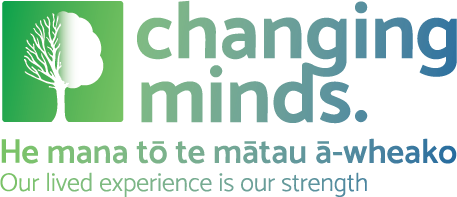Spotlight on: Rose Heta-Minhinnick
After decades of gambling harm, Rose (Ngāti Porou, Ngāti Tūwharetoa, Ngāti Raukawa ki Wharepūhunga, Ngāti Wāhiao) is 10 years sober from gambling and alcohol. Her family has been central to her recovery, which has not been a “quick fix”.
'It takes time,' Rose says. 'It takes energy, it takes effort, it takes tears and sweat, and my family has been able to sit in that space and be my recovery too.'
Rose grew up in Ōtara, with gambling all around her - a normal part of life. Gambling spots were social places in Ōtara, she explains. 'Housie was a place for people to get together, share kai and be social, and because it was fundraising, the gambling was normalised.' Throughout Rose's childhood her mother took her along to card games, Housie sessions and the local racecourse, often taking her out of school to come along and be her "lucky charm".
Rose started gambling by herself when she was 13, playing Housie. It's now illegal for under-18s to gamble, including on Housie, but there was no focus on underage gambling when Rose was growing up. Her gambling continued through her teens, reaching a peak after her mother passed away when Rose was only 21. 'It was part of my grief process,' she explains. 'I'd never been interested in the pokie machines - that was her thing. But when she passed away, in my grief, that’s where I connected with her.' Rose started going to the pubs her mother used to like, and playing the same games. Before long, she says, she was spending over half her time in pubs and the casino, binge gambling and drinking, spending as much as $10,000 a month. 'It just took over,' she says. And for the next 15 years, 'Even though I would pay my bills and the shopping, I would save money specifically to go out gambling. Gambling stopped all the thinking, all the stress and the negative feelings - it all went away. But it was a delusion.'
Often the money Rose kept back for the bills was not enough, and family would step in to help. But one day a family member, who used to buy her groceries when she couldn’t afford to, said no.
'He said, no more. I’m no longer going to lend you money. I’m no longer going to enable you. That would have taken a lot of strength and courage,' says Rose. It was a turning point in her gambling addiction.
Realising she had a problem was the start of a long recovery for Rose, and a massive shift in perspective. When she first reached out to services, it was more around addiction and mental health support, rather than gambling harm. 'I didn't recognise my own gambling addiction,' she says, 'because gambling had been so normalised throughout my life. I'm so grateful for the services that supported me, especially the Kaupapa Māori services.'
Rose was four years into her recovery when she did Changing Minds' Rākau Roroa training, joining the growing network of Tall Trees who use their Lived Experience to inspire others and champion positive mental health messages in their communities.
'As I moved through my recovery,' she says, 'more and more I was supporting others in my whānau and my community. I felt I needed first-hand experience of as many training and support service opportunities as possible, so I could confidently refer whānau to them.'
Rose credits Rākau Roroa with helping her to tell the story of her recovery journey from a strengths based position. ‘It allowed me to step into a high level of learning, and I found my advocacy skills through being involved in the trainings and gatherings of Rākau Roroa,' she says. ‘It's an important part of the journey that has brought me to where I am today.'
And today, after 10 years of sharing her recovery journey in a positive light, Rose is co-Chair of the Problem Gambling Lived Experience Advisory Group with Te Whatu Ora, bringing her Lived Experience of gambling harm to advocate for education and awareness. Knowing better than most how important it is to break the cycle of inter-generational gambling harm, she advocates for gambling harm education in schools, and in prisons, together with holistic, Lived Experience-informed gambling services that embrace whānau and communities.
'I share my Lived Experience with my family, share it with my whānau, with my community - to give them hope,' Rose says. 'Hope that even in the darkest times you can still find yourself, and a better way of being.'

